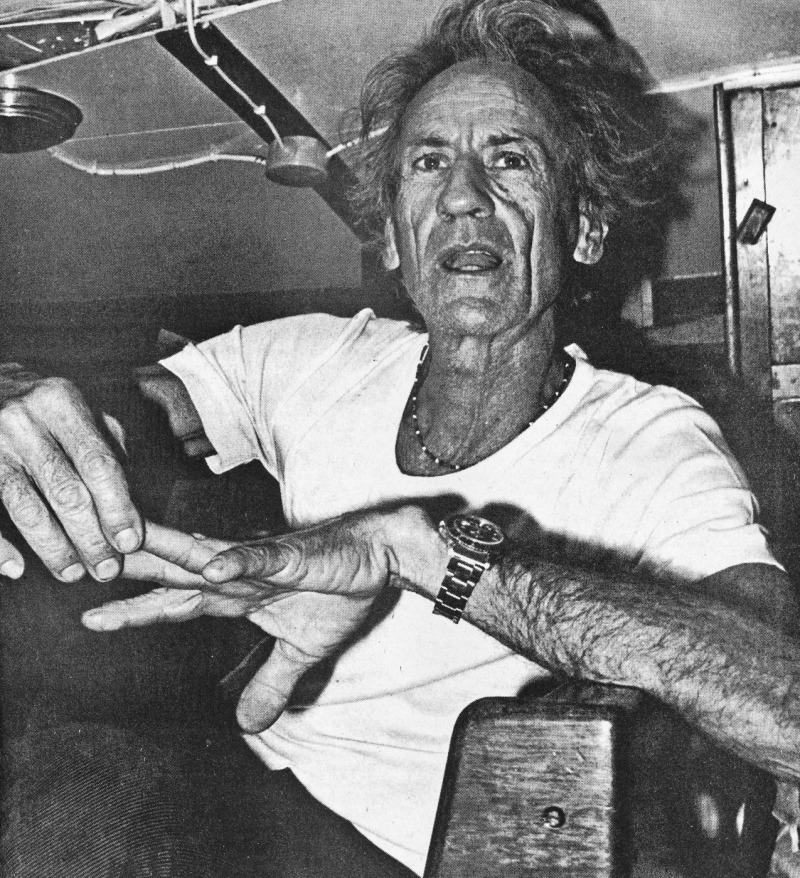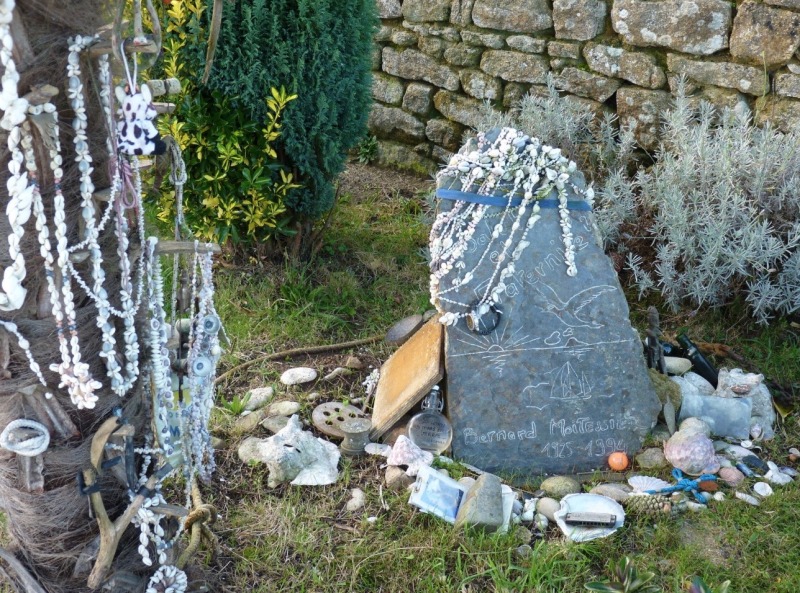
The Interview: Bernard Moitessier
Yesterday was legendary French circumnavigator Bernard Moitessier’s birthday. Born in Hanoi, Vietnam, in 1925, Moitessier would have been 93 years old (he died in 1994 at the age of 69). Moitessier’s lasting influence on sailing cannot be overstated. He spawned generations of French sailors. But Moitessier wasn’t just a sailor; he was a guru, a ‘mystic’, a ‘prophet of the sea’, and an activist. "He wanted to talk about saving the world; I wanted to talk about the ocean," said Randall Reeves, a Bay Area sailor who as a young man met Moitessier and was captivated by his now-famous book, The Long Way. "His descriptions were early inspirations for wanting to see the big bad ocean."
In celebration of Bernard Moitessier’s birthday, we wanted to bring you an abridged version of an interview that first appeared in Latitude in January, 1981, after the Frenchman sailed into Sausalito aboard his famous 40-ft ketch, Joshua. The interview was conducted by Frank DiMarco. If you’d like to read the full text, click here. We’d also like to know if you were influenced or intrigued by Bernard Moitessier. Have you read The Long Way? Please, let us know.

©2018Latitude 38 Media, LLC
Latitude 38: One of the stories that goes around is that you were well on your way to winning a very famous around-the-world race, and for some reason, turned around and went the other way.
Moitessier: When I turned around I sent my message on a slingshot. You know, I would slingshot the message to a ship. In this case the cable was addressed to the Sunday Times, the sponsor of the race. The message I sent was, "I am continuing throughout the Pacific because I am happy at sea and also to save my soul." That’s all that was on the message. I just didn’t feel like going back, going back into all that shit. Publicity, media, you know. When they want to make you some kind of hero, they drive you crazy.
Their way of thinking is wrong to me. It’s no good trying to make a hero of somebody because it’s too easy. And that’s what would have happened to me. I knew that very few boats would succeed in rounding those three Capes without something that would make them have to stop. There was a journalist asking me, before I left, who I thought would win the race and it made me mad. I told him, "Any guy who will have gone around those three Capes will be a winner anyway, even if seven of us arrive or even two or three, so don’t talk about it." There are different rules of the game when you go on such a trip. That’s the fight against the ‘dragon’.
Latitude 38: Bernard?
I didn’t know I was going to fight against the ‘dragon’, which is the second aspect of the trip, the spiritual part. They physical part is that you must be very careful and be as good a sailor as you can. You have to make every little repair, you have to make it immediately so that your boat is brand new any time of the day. For example, one day it was flat calm off the Cape of Good Hope, and I was doing some repair work on the mizzen boom with a marlinspike. The spike fell in the water and I instantly jumped in and got it back before it sank out of sight; so my boat was still new. You see, I didn’t even have to think to do this. I had a spare spike, but still the physical side reacted. The physical side was to do all things necessary to bring the boat back.
Latitude 38: On the spiritual side, what is the ‘dragon’? Is it personal to you, or is it a dragon everyone must confront?

Moitessier: It’s so difficult to explain. For the last two years I tried to write about it. We all have to fight against something. And if we don’t fight, we never evolve. We just stay what we are, which means we stay a bunch of monkeys. We have to fight against something that is bigger than us; we have to create something bigger than our little selves.
Latitude 38: You named your boat after Joshua Slocum?
Moitessier: Yes, I have an immense respect for that man, an immense respect. His (Sailing Alone Around the World) is the first English book that I read. I could only understand one word in every three at the start, and little by little I could read practically fluently. That book is so good! It was just unbelievable that a small boat could do it at that time. Incredible. He was such a great seaman. He opened the road just to prove it could be done in such a small vessel and to show how you could do it. [And] he was over 50.
Latitude 38: Were there times when you thought you communicated with him? Did you start sensing currents like Slocum could?
Moitessier: No, those type of sailors are gone now. Unfortunately it is past. Oh sure, you can sense some things, but not like those sailors. You know, you turn your radio on and you know what is going to happen. But they had to watch. They had to watch everything. That was such an important part of my voyage. I had to be aware of everything if I wanted to succeed. That was also part of the fight with the dragon. Ha ha.
Latitude 38: I was wondering when you’d get back to that.
Moitessier: It’s so nice to just lay on your bunk with a fantastic book, but you also have to be aware of what must be done on deck. Then it starts to become a dance with life, because there are rhythms. You have to be so aware that everything must work good from beginning to end and stay at a high level of quality. That’s what you are looking for, and it is a nice game. You could get very high playing that game, and that is how I could stay at sea that long.
